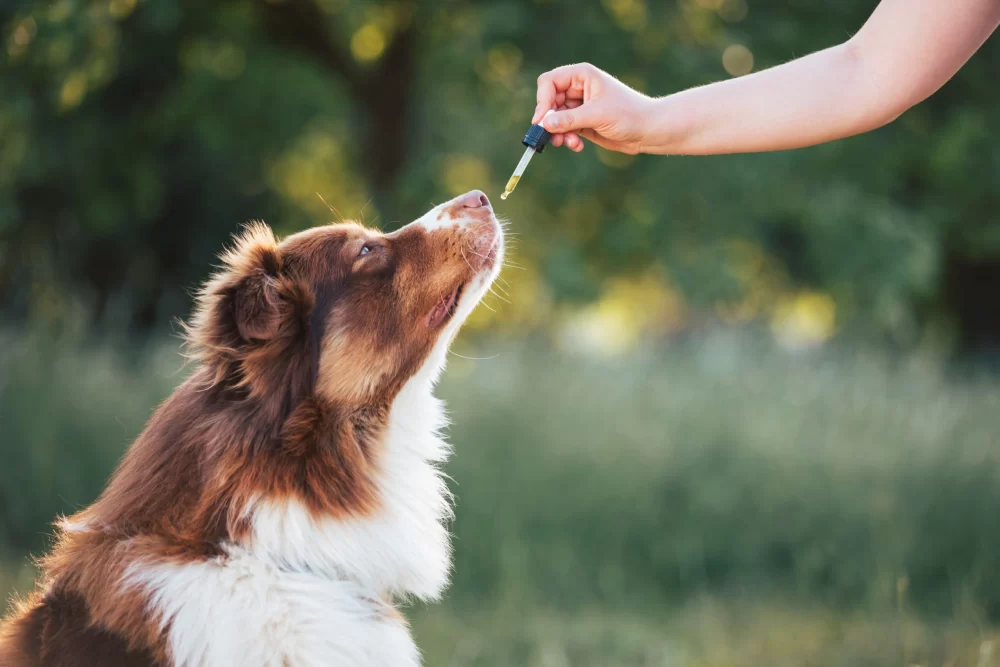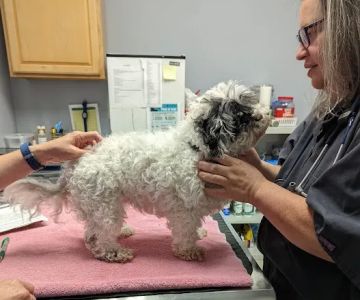Understanding Anxiety in Pets
As a pet owner, it’s heartbreaking to see your furry friend struggling with anxiety. Whether it’s due to separation, unfamiliar environments, or loud noises, anxiety in pets is a common issue. I’ve witnessed it first-hand with my own pets, and I know how distressing it can be. Fortunately, there are several effective home remedies that can help soothe your pet's anxiety and provide them with much-needed comfort. In this article, I’ll share my experiences and some expert advice on natural ways to help alleviate anxiety in your pets.
Common Causes of Anxiety in Pets
Before diving into remedies, it’s important to understand the possible causes of anxiety in pets. For me, it started with my dog, Daisy. Every time there was a thunderstorm or fireworks, she would become visibly distressed, panting, hiding under furniture, and even trembling. I quickly realized that certain triggers were behind her anxiety, and by understanding them, I could better address her needs.
Some common causes of anxiety in pets include:
- Separation Anxiety: Many pets become anxious when left alone, especially dogs.
- Loud Noises: Thunderstorms, fireworks, and even traffic can cause fear and anxiety in pets.
- Change in Environment: Moving to a new home or having new people or pets in the household can trigger anxiety.
- Health Issues: Sometimes, pets act anxious when they are in pain or discomfort, making it crucial to rule out any medical problems.
Understanding the root cause of your pet’s anxiety will help you choose the right remedy to provide relief.
Natural and Home Remedies for Calming Anxious Pets
When my dog, Max, started showing signs of anxiety, I turned to natural home remedies to calm him. There are many holistic solutions available that can help reduce anxiety in pets, and in this section, I’ll share some of the most effective and commonly used methods.
1. Herbal Remedies
Herbal remedies have been a go-to solution for calming pets for centuries. I tried several herbs with Max and Daisy, and they worked wonders. Some of the most popular herbs for pet anxiety relief include:
- Chamomile: Known for its relaxing properties, chamomile can be given as tea or in capsule form to help soothe anxious pets.
- Valerian Root: This herb has a calming effect and can help reduce hyperactivity and anxiety in pets.
- Lavender: Lavender oil can be used in a diffuser or applied topically (diluted) to create a calming atmosphere for your pet.
When using herbs, it's essential to consult your veterinarian to ensure they are safe for your specific pet, especially regarding the correct dosage. I recommend starting with a small amount and observing how your pet reacts.
2. Calming Music and Sounds
One of the easiest and most effective ways to soothe an anxious pet is by playing calming music. There are special playlists designed for pets, including those created to help dogs and cats relax during stressful times. I once tried this with Daisy during a thunderstorm, and surprisingly, she started to calm down after a few minutes of listening to soft, classical music. You can also try sound machines or apps that play calming noises such as rainfall, ocean waves, or white noise.
Music has been shown to lower heart rates and reduce anxiety, making it an excellent remedy for pets who are afraid of loud noises. Try this method and observe if your pet seems more at ease when listening to calming sounds.
3. Aromatherapy and Essential Oils
Aromatherapy is another popular way to treat anxiety in pets. I’ve found that essential oils such as lavender and chamomile have a calming effect on both dogs and cats. You can diffuse these oils in a room or add a few drops to a pet-safe pillow or blanket. However, it’s crucial to be cautious with essential oils as some can be harmful to pets if ingested or applied directly to their skin.
My experience with essential oils was very positive, but I always made sure to dilute the oils and place them in areas where my pets could choose whether to be near them. It’s always best to consult with a vet before using aromatherapy, especially if your pet has a sensitive nose or respiratory issues.
4. Exercise and Mental Stimulation
One of the most effective ways to reduce anxiety in pets is through regular exercise and mental stimulation. Just like humans, pets benefit from physical activity, which helps burn off excess energy and reduces stress. I noticed that taking Max for longer walks and engaging him in interactive games helped him feel calmer and more relaxed at home. It’s amazing how much energy a good walk can drain, leaving your pet in a much more peaceful state.
In addition to physical exercise, mental stimulation is key to managing anxiety. Puzzle toys, treat-dispensing toys, or scent games can keep your pet’s mind occupied, reducing anxiety and preventing boredom-induced stress.
5. Safe and Comfortable Space
Creating a safe space for your pet can work wonders in alleviating anxiety. For Daisy, I made sure she had a cozy spot in the house where she could retreat during stressful times. This could be a crate, a specific bed, or just a quiet corner with some of her favorite toys. Pets often need a safe space to feel secure when they’re feeling anxious or scared, and providing them with a place they can go to escape from noise or activity will help them feel more at ease.
6. CBD Oil for Pets
CBD oil has gained popularity in recent years as a natural remedy for anxiety in pets. After consulting with my veterinarian, I decided to give CBD oil a try with Max. The results were remarkable—he became noticeably calmer during stressful situations like thunderstorms. CBD oil works by interacting with your pet’s endocannabinoid system, promoting relaxation without the sedative effects of some medications. However, it’s important to use a pet-specific CBD product, as human-grade CBD can have different concentrations.
When to Consult a Veterinarian
While home remedies can be effective, it’s important to consult a veterinarian if your pet’s anxiety is severe or persistent. Professional guidance can help identify any underlying medical conditions contributing to the anxiety, and your vet can provide you with the safest and most appropriate treatments for your pet’s specific needs.
For pets with chronic anxiety or if the remedies mentioned here do not seem to work, your vet may suggest medication or therapy. Working closely with a vet ensures that your pet gets the best care possible, especially if anxiety is impacting their overall well-being.
Conclusion
Dealing with anxiety in pets can be challenging, but with the right home remedies, it’s possible to help them feel more comfortable and secure. Whether it’s through calming music, herbal remedies, or creating a safe space, there are numerous ways to help your pet manage anxiety at home. Remember to consult your veterinarian before trying any new treatments, especially if your pet has underlying health conditions. By being patient and proactive, you can provide your pet with the support they need to lead a calmer, happier life.












